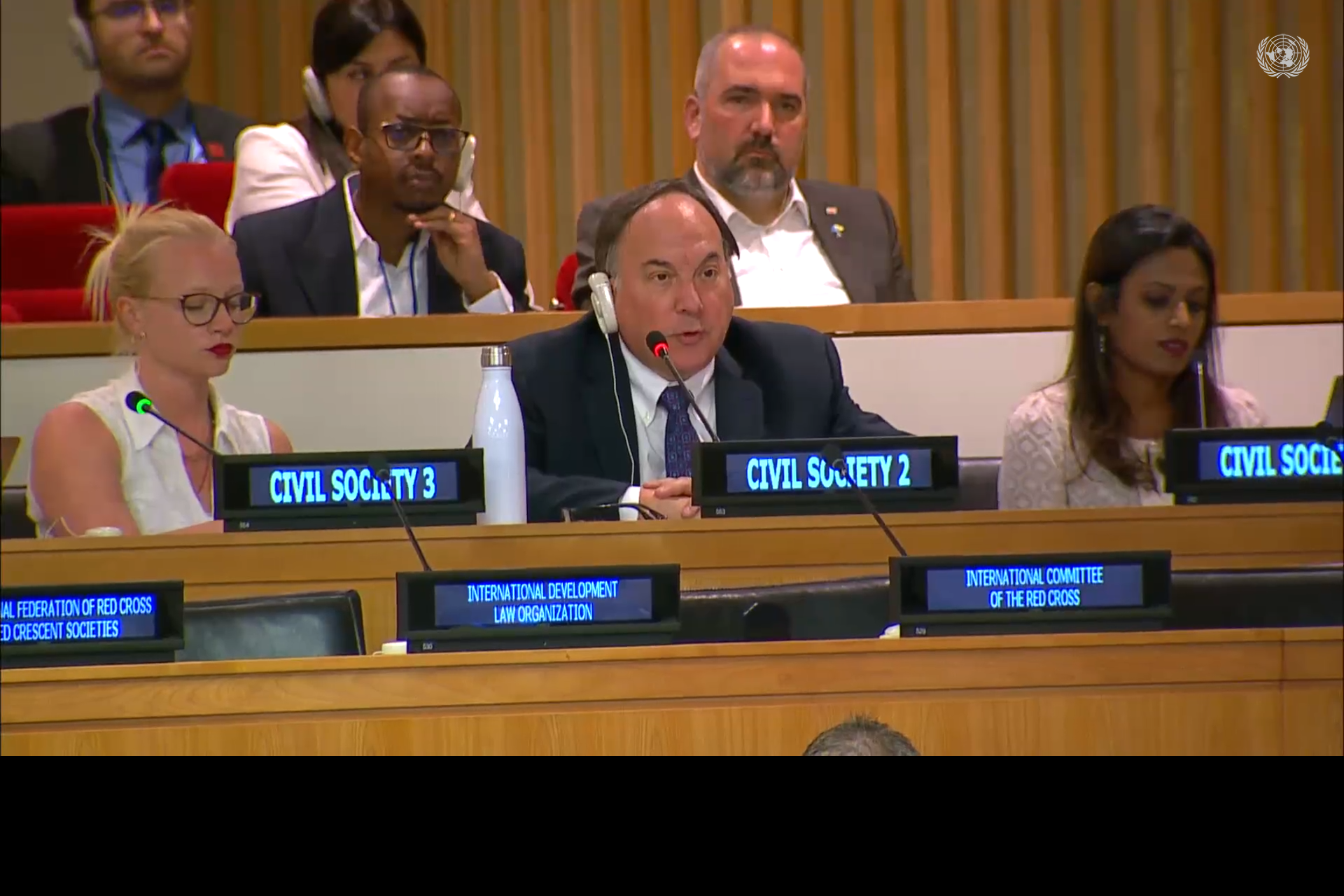September 22, 2023

High-Level Meeting on Universal Health Coverage
“Universal health coverage: expanding our ambition for health and well-being in a post-COVID world”
Remarks by
Dr. Jeffrey L. Sturchio
Chairman, Friends of the Global Fight Against AIDS, TB, and Malaria
United Nations Headquarters
New York, New York
September 21, 2023
Thank you, Madame Co-Chair. I am Jeffrey Sturchio, chairman of Friends of the Global Fight Against AIDS, TB, and Malaria. Thank you for this opportunity to share our perspectives.
Over the last generation, investments in programs to fight AIDS, tuberculosis and malaria have driven a more than five-fold increase in official development assistance for health. In many settings, programs for AIDS, TB and malaria are the closest the health system comes to universal health coverage. In our work to ensure that everyone, everywhere has the health services they need, we should build on the infrastructure created by these investments and take on board the key lessons we have learned.
First, we must recognize that ending AIDS, TB and malaria is a crucial milestone towards UHC. Progress towards ending these diseases is faltering, in part because of inadequate funding and waning political support. We must redouble our efforts to end these diseases.
Second, investing in AIDS, TB and malaria helps build stronger, more inclusive health systems. The Global Fund invests over $1 billion each year in strengthening health systems. A new issue brief from Friends of the Global Fight and Friends Japan identifies 10 areas of health systems that are essential to UHC and in which the Global Fund makes major contributions. That issue brief is now available online at theglobalfight.org.
Third, AIDS, TB and malaria investments have catalyzed the creation of service systems specifically designed for the most marginalized populations, who are often poorly served by facility-based health services. Reaching the most vulnerable and the chronically underserved is essential to achieve UHC.
Finally, the fight against AIDS, TB and malaria has shown the value of inclusive, participatory health governance. Civil society affected communities and the private sector are active participants in governance of the Global Fund.
Given its success in fighting AIDS, TB and malaria; its track record of investing in cross-cutting systems; and its unique model emphasizing results, equity and engagement, the Global Fund offers a critical pathway to Universal Health Coverage.
We urge governments (1) to recommit to ending the AIDS, TB and malaria epidemics; (2) to take on board key lessons from the response to AIDS, TB and malaria in their UHC efforts, including the importance of inclusive governance; and (3) to leverage the unique and crucial role of the Global Fund in helping countries to advance towards universal health coverage.
Thank you.
Learn more:
